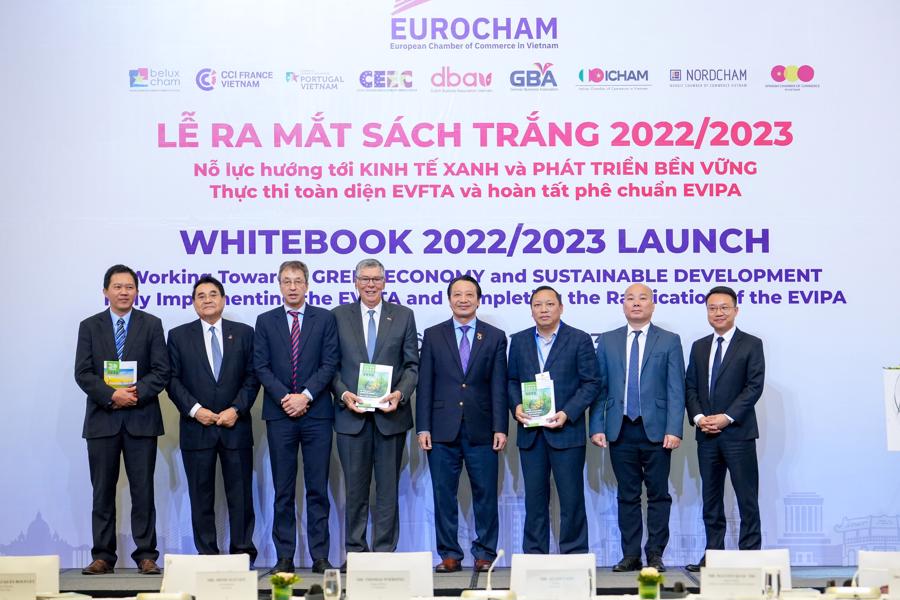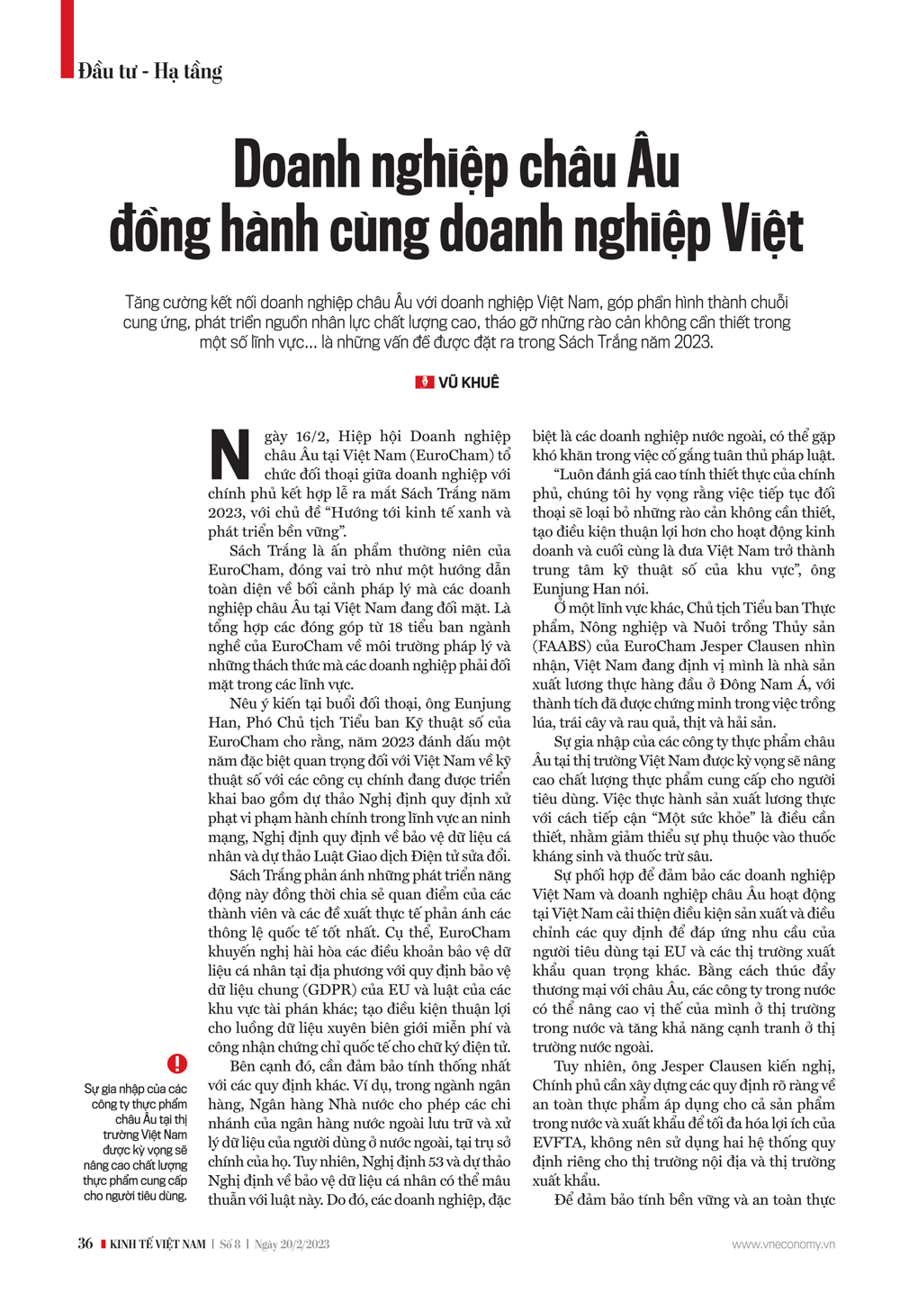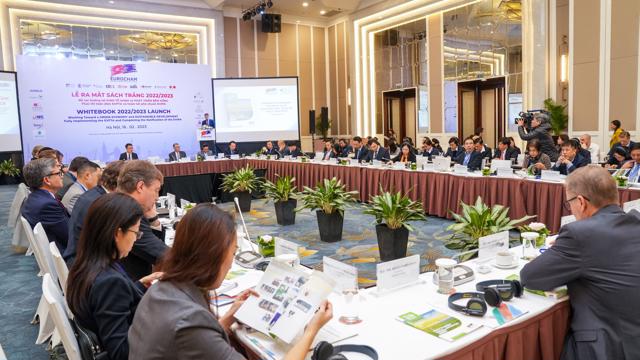[ad_1]
On February 16, the European Chamber of Commerce in Vietnam (EuroCham) held a business-government dialogue in connection with the release of the 2023 White Paper on “Towards a Green Economy and Sustainable Development”.
The White Book is an annual publication by EuroCham that serves as a comprehensive guide to the legal landscape faced by European businesses in Vietnam. It is a compilation of contributions from EuroCham’s 18 industry sub-committees on the regulatory environment and the challenges companies face in these areas.
Mr. Eunjung Han, Vice-Chairman of EuroCham’s Digital Sub-Committee, said at the dialogue that 2023 is a particularly important year for Vietnam in terms of digitization as important tools are being developed. The implementation includes a draft decree on penalties for Cybersecurity administrative breaches, a decree on the protection of personal data and a draft revised law on electronic transactions.
The White Paper reflects these dynamic developments while sharing the views and practical recommendations of its members, reflecting international best practices.
In particular, EuroCham recommends harmonizing local data protection regulations with the EU General Data Protection Regulation (GDPR) and the laws of other jurisdictions; Facilitation of free cross-border data traffic and recognition of international certificates for electronic signatures.

In addition, consistency with other regulations must be ensured. For example, in the banking industry, the state bank allows branches of foreign banks to store and process data from users abroad at their headquarters.
However, Decree 53 and the draft decree on the protection of personal data may conflict with this law. As a result, companies, particularly foreign ones, may struggle to comply with the law.
“We always appreciate the government’s practicality and hope that continuing the dialogue will remove unnecessary barriers, create more favorable conditions for doing business, and ultimately make Vietnam the digital hub of the region,” said Mr. Eunjung Han.
Elsewhere, EuroCham Subcommittee on Food, Agriculture and Aquaculture (FAABS) Chair Jesper Clausen acknowledged that Vietnam is positioning itself as a leading food producer in Southeast Asia, with a proven track record of growing rice, fruits and vegetables, meat and seafood .
The entry of European food companies into the Vietnamese market aims to improve the quality of food offered to consumers. In order to reduce dependence on antibiotics and pesticides, it is imperative to practice food production with a “One Health” approach.
Cooperation to ensure that Vietnamese and European companies operating in Vietnam improve production conditions and adjust regulations to meet consumer needs in the EU and export markets, other meaning. By promoting trade with Europe, domestic companies can strengthen their position in the domestic market and increase their competitiveness in foreign markets.
However, Mr Jesper Clausen suggested that in order to maximize the benefits of the EVFTA, the government should develop clear food safety regulations that apply to both domestic and export products, separate regulations for the domestic market and the export market.
To ensure food sustainability and safety, food, agricultural and fishery products must be traceable. The government and the agricultural sector must enter into a dialogue to ensure traceability instead of relying on NGOs.
This year’s White Paper emphasizes sustainability by not only reducing the environmental impact of economic activity, but also by creating new economic opportunities and building a more sustainable future for Europe as a whole and Vietnam. Green economy and sustainable development are two key factors.
Green Growth Subcommittee Chair Tomaso Andreatta said that as Vietnam’s economy develops, so do the threats to the environment. For this reason, EuroCham has paid close attention to formulating guidelines in the White Paper to reconcile economic growth and environmental protection.
EuroCham provides guidelines to promote the use of energy efficient smart buildings to reduce pollution and energy consumption, as well as better water management practices, including water resource management, to combat the effects of climate change.
The content of the article was published in Vietnam Economic Review No. 8-2023, issued on February 20, 2023. Welcome readers to read The:
https://postenp.phaha.vn/chi-tiet-toa-soan/tap-chi-king-te-viet-nam

[ad_2]
Source link

